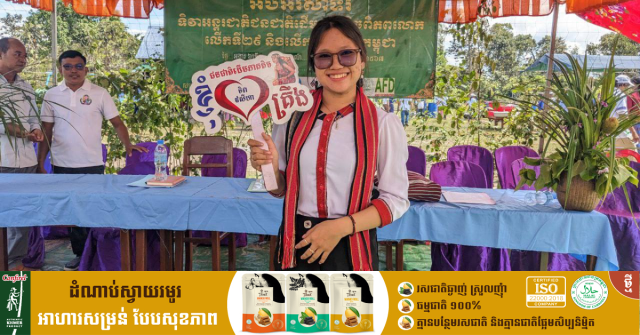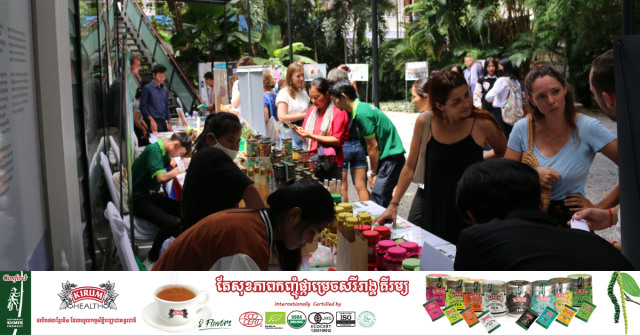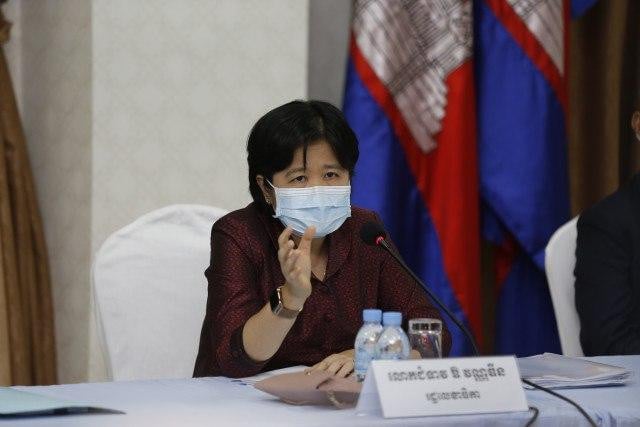Law Student Seeks Better Legal Protection for Indigenous Communities

- By Po Sakun
- October 3, 2023 3:02 PM
PHNOM PENH – Nan Mara, an indigenous woman who pursues an education in law, hopes to use her legal skills to improve the legal protection of indigenous communities.
From Ratanakiri province, Mara, 23, is from the Krueng ethnic group. She started to have the ambition of better protecting her community using legal means after one of her friends was raped and murdered. Until today, no light of justice has been given to her friend’s family.
After being involved for six months with the Cambodian Indigenous Peoples Organization (CIPO), a local organization defending indigenous rights, Mara, a discreet and shy person, decided to enroll in a law degree in November 2019.
Her dream is to help indigenous communities not to be deprived of justice and to protect their most vulnerable people.
“After I worked closely with indigenous communities, I saw that many of them were facing a lot of difficulties,” said Mara who passed her bachelor's thesis on Sept. 21. “I thought to myself that if I knew the law, I could help them with legal advice.”
With tears in her eyes, Mara recalled that her commitment was motivated by her friend’s death, which left her with regret and psychological suffering.
She deems legal knowledge as a tool to help other indigenous people, especially women.
“Although I may not be able to help directly, I think I can be the one who gives legal advice,” she said.
Finding the right path
But Mara has come a long way before finding her path. The youngest among four siblings, she first started a degree in Agricultural Economics but dropped out of it as she found no interest in such studies.
She returned to her hometown, in Koun Mom district, embarrassed by the fact she did not graduate.
“When my neighbors asked about my study, I had no word to say,” she recalled. “They said I should not have gone to Phnom Penh to pursue higher education in the first place. I was so anxious.”
When CIPO offered her a job opportunity in March 2019, Mara did not dare to take it as she had lost faith in her capabilities. But thanks to the pressure from her neighbors, she eventually decided to give it a try. After six months, her confidence was back and she decided to engage in studying again. This time, in law school.
“I dared not go anywhere without my friend, but after working with the organization, I was able to travel alone,” she said.
Mara firmly believes learning from surrounding people and through life’s experiences has played a key role in building herself as a young adult.
She now aims to pursue a master’s degree in law to be a role model to indigenous girls to take education seriously.
“Education is important,” she said. “We learn until we die. Only education can brighten our future. [The word] ‘education’ does not only refer to education in school but also from what we learn from our experiences and the people surrounding us.”
During her studies and work, Mara was able to travel to Thailand and Switzerland to learn more about indigenous rights. These trips and the people she met there helped her sharpen her knowledge and vision.
While waiting to start her master's degree, she rejoined CIPO and is working there as a project assistant, with the clear intention of taking advantage of this opportunity to become a clerk and put her legal skills at the service of indigenous communities.
Originally written in Khmer for ThmeyThmey, this article was translated by Teng Yalirozy for Cambodianess.















